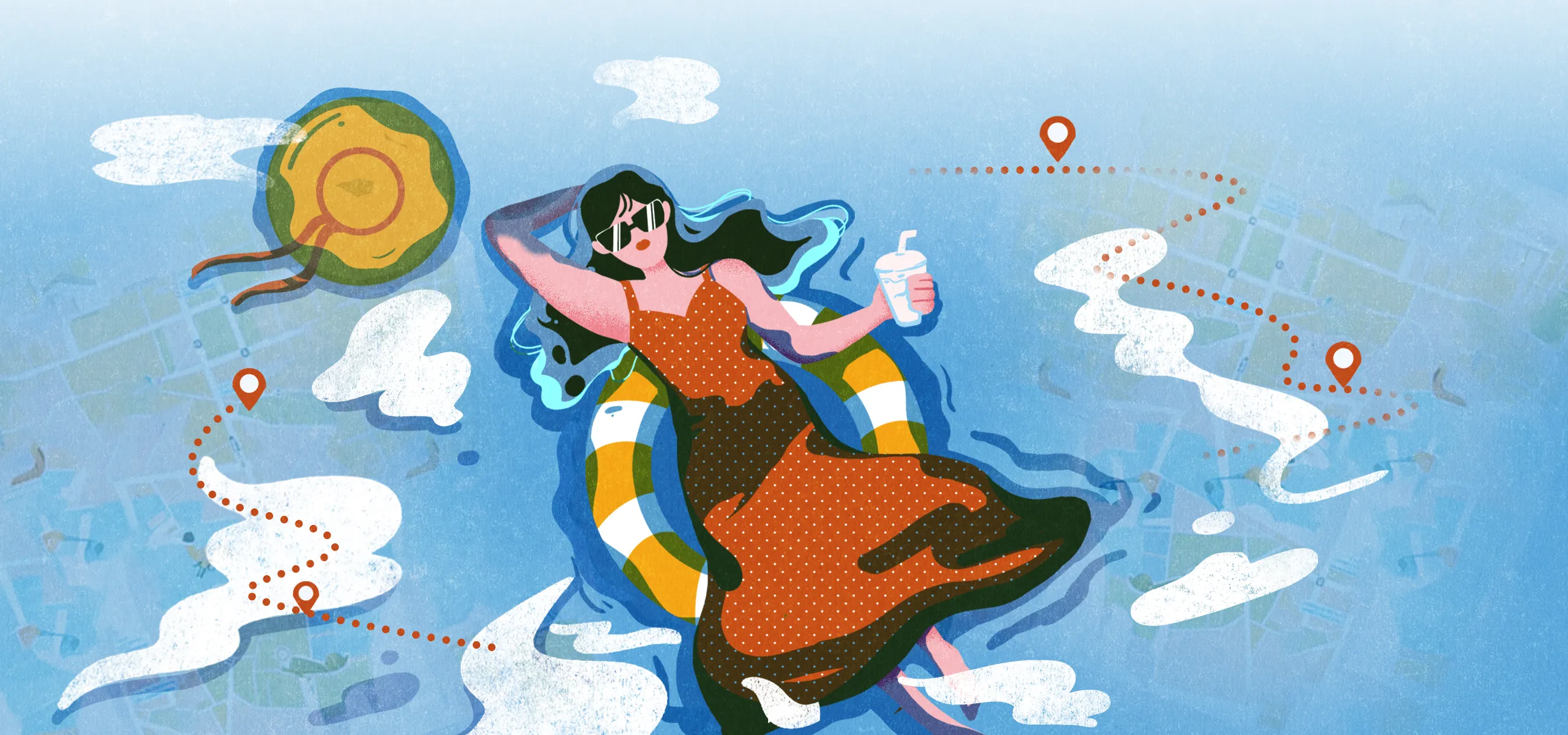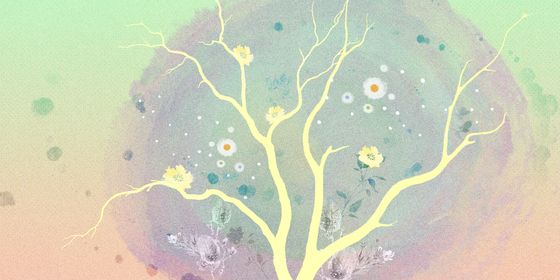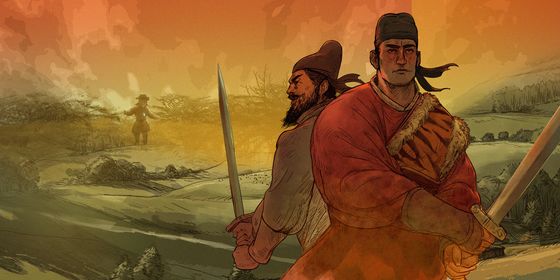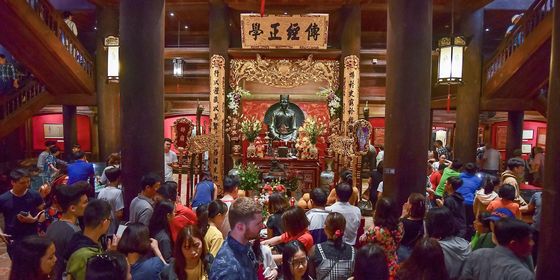The character 游 is for travel, imagination, and going with the flow
On a cold autumn morning, a man stands among frosted reeds by the riverside, yearning for his beloved one across the water, only to find his love is out of reach: “When I try to reach her by going against the current, the journey is difficult, dangerous, and long; when I follow the current, she seems to stand still in the heart of the waters. (溯洄从之,道阻且长。溯游从之,宛在水中央。Sù huí cóng zhī, dào zǔ qiě cháng. Sù yóu cóng zhī, wǎn zài shuǐ zhōngyāng.)”
The poem, collected in the Classic of Poetry (《诗经》), a compilation of poems and ballads from the 11th to 6th centuries BCE, describes the desire for love and the depression of a hopeless pursuit. The movement and journey also capture the essence of 游 (yóu, swim, travel).
The character 游 first appeared etched on oracle bones over three millennia ago, with a simple yet evocative pictograph: a child holding a flag. According to the 2nd-century Analytical Dictionary of Chinese Characters (《说文解字》), this image reflects the character’s original meaning: the fluttering tassels of flags in the wind. In the Spring and Autumn period (770 – 476 BCE), the character was adorned with the 氵(shuǐ, water) radical, which later evolved into its current form (游), with its meaning also expanded to include floating or submerging in water. Accordingly, it does not only refer to “swimming (游泳 yóuyǒng),” but also a segment of water, such as the upper reaches of the Yellow River (黄河上游 Huánghé shàngyóu).
With time, 游 transcended its aquatic origins to encompass terrestrial travel, as in phrases like 游牧 (yóumù), the traditional lifestyle of nomad herders who migrate with the seasons, and 游击 (yóujī), the guerrilla tactics of war that rely on swift, unpredictable movement. 游民 (yóumín), typically stray folks without a fixed profession, are often condemned, and 游子 (yóuzǐ), children who left their parents and hometown, are always on their family’s minds. As the Tang dynasty (618 – 907) poet Meng Jiao (孟郊) wrote in “Song of the Traveling Son (《游子吟》)”: “Thread in the hands of a loving mother turns to clothes on the traveling son (慈母手中线,游子身上衣 Cí mǔ shǒu zhōng xiàn, yóuzǐ shēnshang yī).”
But 游 is not only about survival and struggle; it also refers to leisure and exploration. Traveling (旅游 lǚyóu) takes people beyond their familiar horizons, while viral tourist cities (旅游城市 lǚyóu chéngshì) like Zibo in Shandong province and Harbin, Heilongjiang province, have seen their fame come and go in recent years, just as water never stops flowing. As a result, some local tour guides (导游 dǎoyóu) might have to reconsider their career paths.
Idioms like 游山玩水 (yóushān wánshuǐ, to roam mountains and appreciate waters) and 云游四海 (yúnyóu sìhǎi, to wander the four seas) celebrate the spirit of adventure. During such expeditions, people often compile travel notes (游记 yóujì) recording their personal insights and cultural observations. Meanwhile, 游学 (yóuxué, literally “traveling and learning”), a centuries-old tradition that resonates with today’s overseas exchange and study programs, emphasizes the belief that true learning extends beyond the classroom walls.
In addition to physical tours, one can take “journeys” without moving or even consciousness. For instance, sleepwalking is 梦游 (mèngyóu), and 神游 (shényóu) is to let one’s mind drift to distant lands or spaces they cannot physically visit. Through imagination, one can even 神游太空 (shényóu tàikōng), or “tour outer space.”
The character 游 has taken on new dimensions as it has sailed into the contemporary era, appearing in 游戏 (yóuxì, games), which encompasses both traditional pastimes like hide-and-seek and the digital realms of 电子游戏 (diànzǐ yóuxì, video games). Even in this modern context, 游 retains its connection to the exploration of new worlds, whether virtual or real.
Despite the allures of these adventures, travelers since bygone times find themselves reflecting on the delicate balance between wanderlust and the warmth of home. While increasing numbers of Chinese have migrated to work and live in other cities or countries apart from their parents over the last several decades, many have also returned to their hometowns, even after studying abroad. The sentiment is captured in a Confucian saying: “When your parents are alive, don’t travel far (父母在,不远游 Fùmǔ zài, bù yuǎn yóu).” That reminds us that while the heart may yearn for distant horizons, we should remember the home from which we ventured forth.
游: Learn the Chinese Character for Journeys and Adventures is a story from our issue, “Viral Attractions.” To read the entire issue, become a subscriber and receive the full magazine.













